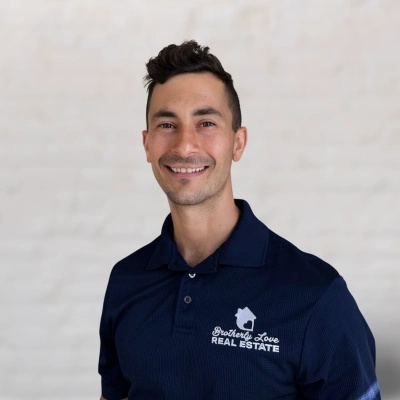13 Tips for Authentic Self-Promotion in the Wellness Industry
Discover essential strategies for genuine self-promotion in wellness, compiled from experts who have mastered the balance between authenticity and effective marketing. The wellness industry demands transparency and trust, requiring professionals to showcase their value without resorting to aggressive sales tactics. These thirteen practical tips offer a straightforward approach to building your brand while maintaining the integrity and connection that wellness consumers expect.
Prioritize Connection Before Selling
Go into every human interaction with the goal of connecting with them above all else. We must treat every person as an end unto themselves, and never a means to some other end, such as a sale. We must prioritize human connection before anything else to achieve this. That being said, we should also be honest about the fact that we are selling something, or trying to achieve these other ends. As long as connection is the priority, the interaction is authentic.

Share Knowledge First, Mention Brand Later
I am "just" being helpful in my industry, and then I refer to myself once in a while, but now very often.
For example, I've shared a lot of knowledge on YouTube, and because I've showcased my knowledge, I've gotten leads that way, even without advertising.
Another way is to go to Reddit, find subreddits within your industry, and then start answering people's questions. Don't mention your brand, but as you begin to grow some authority on Reddit, you can slowly start to mention your brand once in a while.
Another way I've seen work well on Reddi is to create a post on your profile that talks about you or your brand. Then, when you're being helpful and people go to your profile, they'll immediately learn about you, without you having to mention your brand.
A last method I've used is on X/Twitter, where I add my business name to my username and then just start being active on X/Twitter. This has generated significant amounts of traffic to my website.

Build Community Through Design Collaboration
To sell myself without being overly salesy in my marketing and messaging, I focus on community and collaboration. I consider myself part of the larger, collective design conversation, rather than focusing on myself as a service provider. I actively look for opportunities to work with other designers, whether they're architects, interior designers, and makers in my local community. We help each other by utilizing our skills and promoting each other's work. Each collaboration enhances my work and gives me a feeling of belonging in the design community. I share these experiences in my marketing to tell a broader story about my work in relation to connection and shared values, rather than focusing solely on one's own success.
I also connect with my audience through social media and my website by sharing thoughts and ideas about design, sustainability, and functionality. In the way I respond to questions and comments, I try to offer value and insight and develop a conversation that feels encouraging and authentic. By focusing on the needs and aspirations of my clients, I can promote my work in a way that feels genuine and aligned with my values, making the marketing process more about mutual benefit than mere transactions.

Focus on Trust Instead of Attention
I approach self-promotion by focusing on long-term trust instead of short-term attention. It is easy to put out a bold claim or a polished highlight and get quick reactions, but I have never found that to be sustainable. What matters to me is consistency. If people see that I am reliable in the way I communicate, in the way I share updates, and in the way I acknowledge both wins and setbacks, they are more likely to trust me. That trust is worth far more than any short burst of attention.
To make this work, I am careful to highlight the process as much as the outcome. People often find the behind-the-scenes story more valuable than the polished result. Sharing how something came to life, who contributed, and what roadblocks were overcome makes the promotion more relatable and human.
For me, what feels genuine is when I can say, "This is what we tried, this is what worked, and here is what we are still figuring out." That level of openness turns marketing into storytelling and relationship-building. At the end of the day, I want people to feel like they know me and can trust me, not that they were simply marketed to.

Position Yourself as a Trusted Authority
Seeing yourself as an authority has to come first. When you know what kind of authority you are in your industry, and why people trust you enough to buy from you, that entirely changes how you show up.
People automatically defer to authorities. When you understand how to show up as someone people buy from easily, self-promotion becomes a service. You're helping people get connected with the solution only you can provide.

Frame Conversations Around Client Priorities
For me, self-promotion feels genuine when it is rooted in sharing knowledge rather than pushing a product. At Tecknotrove, our clients operate in high-stakes environments where safety, efficiency, and compliance are non-negotiable. So instead of positioning myself as "selling a simulator," I focus on discussing real challenges they face and offering insights on how simulation can solve them.
For example, when speaking with airport operators, I don't start with a pitch. I start with data or examples of how ground handling errors contribute to aircraft damage and delays, and then explain how training simulators can address that. By framing the conversation around their priorities, it becomes about problem-solving, not selling.
What feels most authentic is when the other person sees value in the interaction itself — even if they don't buy immediately. That way, I'm not just promoting Tecknotrove, I'm building trust and positioning us as a long-term partner.

Make Value Accessible Without Hard Selling
I've found that effective marketing isn't about self-promotion but about making it easy for people to access the value you provide.
In our company, we include simple "Book a Meeting" links in email signatures, turning everyday communications into opportunities for connection without a hard sell. Similarly, when I published my third book, I began sending it as a gift to potential clients instead of traditional promotional materials, which feels more like sharing knowledge than pushing services.
For me, genuine marketing comes down to focusing on how I can help people rather than how I can sell to them.
Lead With Concrete Results and Data
I promote myself by leading with numbers and outcomes. So if a Google Ads campaign cut CAC by 25% or a landing page tweak lifted conversions from 2.1% to 2.6%, I share both the process and the results. People then focus on the impact, not me, and it feels natural.
I like using case studies and raw screenshots instead of polished decks. Because numbers people can see build more trust than slogans. That proof sparks real conversations with people who care about results, and I don't have to push.
Tone matters a lot too. So I share wins and fails the same way I'd talk to a friend. If something failed, I explain what went wrong. If it worked, I lay out the steps I took. That mix keeps it honest and makes the story stronger.
Self promotion feels genuine when I focus on experiments and data. Because if the work proves value, there's no need to dress it up.

Let Quality Work Speak For Itself
Self-promotion and marketing are often the same thing as being a good craftsman. The way I approach it without feeling salesy is to stick to one simple rule: show, don't tell. My goal is not to convince a client with slick language; it's to build trust by proving I know what I'm doing.
My preferred method for "self-promotion" is visual evidence. After every job, we take a lot of photos and short videos of the completed work. We post these raw, unedited photos online. The content is purely factual: a photo of the initial damage, a photo of the new underlayment, and a photo of the perfect, finished roof. We don't use fancy captions.
What feels genuine to me is the honesty of the camera. When a client calls, they don't have to take my word for our quality; they can scroll through dozens of jobs we've done and see the clean lines and the detailed flashing for themselves. That visual evidence is a direct, honest commitment to quality, and it eliminates the need for any salesman talk.
The key lesson is that in a hands-on business, your best marketing asset is the quality of the work you leave behind. My advice to other business owners is to stop focusing on your sales pitch. Focus on your product. Let your craftsmanship speak for itself, and your customers will do all the marketing you need.
Share Value Instead of Selling Outcomes
Self-promotion can be approached by focusing on sharing value rather than selling yourself. Instead of thinking of it as a pitch, frame it as offering information, insights, or stories that could inspire others. Generally, the most genuine approach is to highlight the "why" behind the work, focus on what you care about, who it serves, and the impact you hope it has, rather than selling outcomes. You can use techniques like storytelling to make self-promotion feel more authentic and naturally invite connection rather than pressure. I also recommend leading with generosity by sharing useful tips, resources, or perspectives without expecting anything in return. When you align your marketing with your own values, speak in the same voice and use body language that you`d use with a friend, and encourage discussion, it feels less like selling and more like connecting, which is what truly resonates.

Celebrate Your Customers, Not Your Accomplishments
For a long time, my self-promotion was just a glorified brochure. I would post pictures of my work and accomplishments, but it did nothing to build a brand or to connect with my audience on a personal level. I was talking at my connections, not with them, and my professional brand was invisible in a sea of other professionals doing the same thing.
The role a strategic mindset has played in shaping my personal brand identity is simple: it has given me a platform to show, not just tell. Our core brand identity is based on the idea that we are a partner to our customers, not just a vendor, and my self-promotion is how I prove that.
What feels genuine to me is using my platform as a place for my connections' stories. We created a new process where I am trained to identify and track the success stories of my friends and colleagues. When a connection uses their skill to solve a difficult problem, I treat it as an opportunity. The focus isn't on my life; it's on their skill, their expertise, and their success in navigating their day.
This has been incredibly effective. My professional brand is now defined by the quality of my connections and the work they do, which is a much more authentic way to build a brand. My social media is no longer a broadcast channel for my accomplishments; it's a community of experts, and I'm just the host.
My advice is that you have to stop thinking of self-promotion as a place to promote your brand and start thinking of it as a place to celebrate your customers. Your brand is not what you say it is; it's what your customers say it is.

Show Up Consistently as Your Brand
I view self-promotion less as sales and more as branding. I am my brand.
My business is very locally driven, with many of my clients being within a 10-15 minute drive. Self-promotion for me begins with being involved. I am not only a member of our local Chamber, but I also serve as an Ambassador and stay involved with their Young Professionals and Small Business Collective. I also sit on several boards within the community, and spend my free time supporting others.
Just showing up is half the battle. That's authenticity. I don't pitch myself or force business cards in people's hands. I'm just there.
However, I do make sure that people remember me when I'm there. My business branding is pink, so I show up to every work meeting, event, etc in pink. I am my business, so my business name is literally my nickname I have had for 15 years. Megan Treglown of MegTreg Collective. Easy. Authentic. MegTreg was on my license plate when I was 18 years old, and I didn't own this business until I was 32.
How do I market myself outside of just being involved and seen? My social media is filled with both educational posts and relatable posts. I show the true behind-the-scenes, but also ensure it's easy to understand that I know what I am talking about. I show off marketing materials I have helped create, analytics from clients once they started, or even stopped, using me, and even lessons I have learned.
To sell myself is to be myself.
And to show up so people can remember me being myself.

Market Through Methods You Respond To
When I make a marketing plan, I always think about what techniques work on me personally. I know that I detest receiving cold calls from salespeople. I enjoy reading reviews, watching videos, and getting referrals from trusted people in my life. To be authentic to myself, I have built my marketing plan around getting reviews and referrals from my past clients and making content that is interesting and helpful to my audience. I avoid marketing techniques like cold calling because it is inauthentic to who I am.




